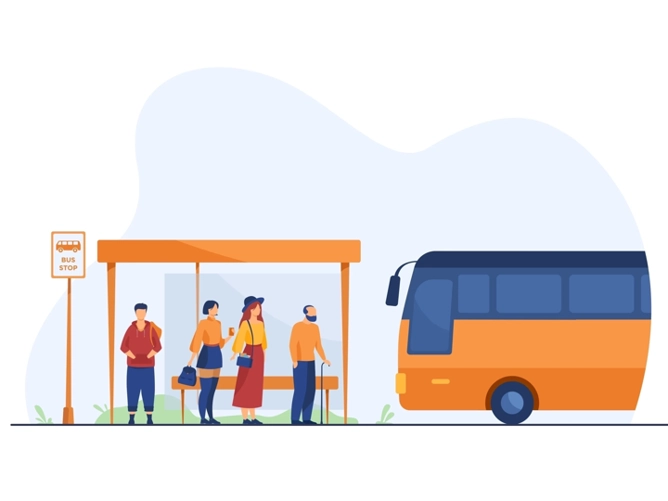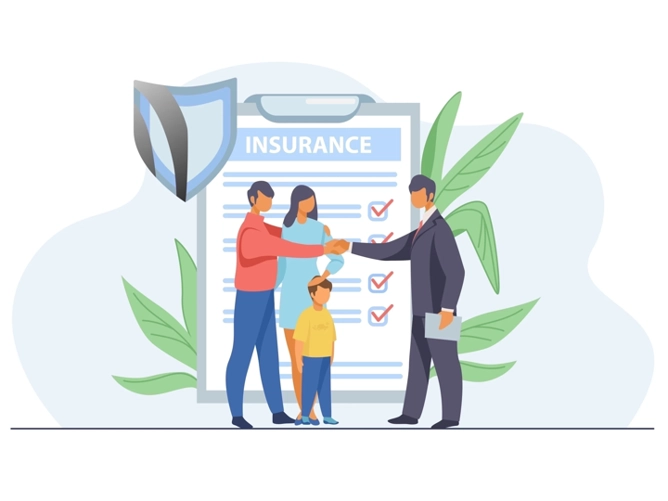
Public Transport in Germany – Complete English Guide [2026]
Are you planning to move to Germany for permanent residence? Are you traveling to Germany for an office or holiday trip? Are you looking for someone who can guide you about the Public transport system in Germany? Then you are at the right place, in this comprehensive guide, we have mentioned everything you need to know about public transport. Most German cities have the best public transport facilities for people traveling from one place to another. Germany has a lot of options to travel through public transport. According to the latest study, almost 30 million passengers use public transport to travel either for work or leisure. Larger cities of Germany like Berlin, Munich, and Hamburg have a transport association that deals with all matters regarding public transportation.
Looking for Taxi Services in Germany?
Check out our detailed article on How to Get a Taxi in Germany.
Types of Public Transportation in Germany
Planning your travels and tours has been easy with the modern infrastructure in Germany. There are five basic kinds of public transportation in Germany, as listed below;
- U Bahn
- S Bahn
- Bus
- Regional Trains
- Tram
Let’s discuss these kinds of transport in detail.
U Bahn
This is a German version of the metro. Many lines of U Bahn run above the ground. A few are there in subways and the tubes. The symbol of this transport is a white S on a blue-colored sign. This transport operates at night during weekends in large cities of Germany.
S Bahn
S Bahn is the fastest public transport in Germany. It is just like the urban and suburban rail system that provides transport services to the metropolitan region. It connects the suburbs and other regions with the city’s central point. It also links them with the main rail station to make travel easy for passengers. The symbol of this transport is a white S on a green-colored background. This transport operates at night during weekends in large cities of Germany.
Bus
Buses and bus stops are the mainstays. People moving from German towns and cities can use buses even at night when other transportation services are closed. Bus stops in Germany are usually at a distance of 300 meters. Bus stops are identified by a green-colored letter H on a yellow background. H stands for the Haltestelle, which means the stopping point.
Regional Trains
Deutsche Bahn is a company that operates most of the train services in Germany. Similarly, a lot of networks and groups have regional trains. There are two kinds of regional trains. One is RB, and the other is RE. RB has multiple stopping points, while RE is faster and has fewer stopping points than the RB.
Tram
These are the streetcars performing a role between U Bahn and a bus. The trams travel on rails alongside the main roads of Germany. They stop at multiple locations to drop passengers at different centers within the city. Tram dropping stops are usually combined with the other bus stops in Germany. The symbol of this transport is the written word tram on a red-colored background.
Types of Travel Tickets for Public Transport in Germany
You must buy a travel ticket in Germany if you want to travel through public transport. There are five different types of travel tickets that you would buy while traveling from one place to another. These travel tickets are classified as;
- Single ticket
- Short trip
- Day ticket
- Group day ticket
- Week ticket
We will explain all kinds of tickets for your better understanding and with the objective that you may make a purchase decision easily.
Single ticket
Single tickets are time-bound. They are valid for a defined period, usually minutes. You can change your transport whenever necessary to complete your journey. Return journeys and round trips are not allowed with a single ticket. You will stay within a specified zone if you have a single ticket.
Short trip
You need a short trip ticket if you travel from one stop to another. This ticket is only valid for two or three stops. You can use a short trip ticket on a single public transport, and you cannot change trains with a short trip ticket.
Day ticket
You can enjoy an enhanced travel experience with a day ticket as it allows you to travel across various zones. This ticket is valid for 24 hours, and you can enjoy unlimited travel the whole day. The expiry date and time are mentioned on your ticket, so there is no need to worry.
Group day ticket
Group day tickets are expensive, but they offer great value to their customers and clients. If you are traveling in a group of two or more people, you must buy a group day ticket rather than choosing other forms of travel tickets. The maximum number of persons in a group day ticket is five. You can travel unlimitedly within the specified zone for 24 hours if you have a group day ticket.
Week ticket
Week tickets are valid for a full week. You can travel for a whole week within specified travel zones. You can purchase a longer ticket that is valid for more than a week. Month passes are also available that are valid for one month. You can buy these tickets from an official ticket office. As it requires a handsome amount of money, it is recommended to not buy a longer ticket from someone else or a ticketing machine to avoid any inconvenience.
Different Travel Zones in a City
Travel zones are crucial for the German public transport system. Almost all systems are interlinked, so your ticket price usually depends upon the number of zones you will need to travel to. Public transport works on a map that is typically divided into different zones. City central point is zone A; a little away is zone B, and further away is zone C.
You can change your transport as often as possible to complete your travel. Your ticket will be valid within the zone on all kinds of transport. If your ticket is valid for other zones too, you can travel. Otherwise, you need to buy another ticket.
How to Know if You Have a Valid or Invalid Travel Ticket?
Travel tickets are not stamped when you buy them. You must get them stamped and validate your tickets from a validator machine next to the ticket machine or a ticket station. Your ticket must be valid before you enter the train or a bus. You can buy tickets in advance and get them stamped when you need to travel. A stamp must be with a date of use. Otherwise, your ticket will be considered invalid.
What Happens if you Travel without Travel Ticket?
Honesty is a requirement to travel in Germany. There is no barrier to buying a travel ticket. If your ticket is invalid, you will be asked to pay up to 60 Euros. Now in some places you will also see 80€.
Buying Guide to Buy A Travel Ticket
Due to a well-structured ticketing system and the integration of transport offices, buying a ticket is so simple now. You can buy a ticket of your choice and need it from an automated ticket machine available at all S Bahn, U Bahn, and tram stations and stops. If you are not a native German speaker and don’t know how to speak German, you can change the machine’s language to English. You can buy your desired ticket from the driver if you travel on a bus. Typically, all stations have a ticket counter where you can easily buy your travel ticket. With technological advancements, most travel companies have generated e-tickets that customers can easily buy through their applications.
Mobile Apps for Public Transportation in Germany
Online applications have made tour planning and ticket buying easy, convenient, and simple. A few of the latest applications are described below;
Google Maps – this application has integrated timetable, route planning, and schedule for its users. It is a widely available application for Android, iOS, and your browser.
FAIRTIQ – this is a ticketing app that works with local public transport systems in Germany, and it is available for Android and iOS.
Offi – It is an application that operates for all local and regional transport networks in Germany. Offi is available only for Android.
Citimapper – This application is available in almost all major German cities like Berlin, Hamburg, Cologne, and Dortmund. It is available for Android, iOS, and your browser.
Most public transport has its applications for its customers. They offer route planning, schedule, timetable, fares, ticket-buying options, maps, and more.
German Trains for Transportation
It is the busiest network of transportation in Germany. The main railway company in Germany is a private company named Deutsche Bahn. This company has high-speed, intercity, regional, and urban trains to travel throughout the city. It also travels across borders.
There are other private train companies and a dozen regional train services in Germany. The municipal public transport authority runs the U Bahn and the Trams. The prices for train tickets vary because of the different services provided by the service providers to their passengers.
Buying a train ticket or having a booking to travel on a train is not necessary. Prices are usually fixed, and you can buy them from the ticketing counters at the train stops easily.
German Bus Transportation System
There are various authorities having buses for public transportation in Germany. Every German state manages its local transportation within its borders. These authorities offer services to every corner of Germany. Night buses are common in urban areas. Prices for bus tickets are set by the authorities who are running them.
Taxis in Germany
Another transport option in Germany is a wide range of taxis and ride-sharing services available by different providers. Taxis are a great option but a bit expensive compared to the other transport modes. Hiring a taxi at hotels, malls, hospitals, and from stands is easy but tough on the streets. You can use applications to call taxi drivers to the streets within Germany. There are strong regulations for taxis and cabs in Germany, so passengers also have high expectations. You have to make payments in cash when you are traveling. If you are using an app, you can make non cash payments through your cards. We have written a detailed guide on Taxis in Germany.
Looking for Taxi Services in Germany?
Check out our detailed article on How to Get a Taxi in Germany.
**
Benefits of Public Transport in Germany
- Public transport in Germany is comparatively efficient, simple, and convenient.
- You can save cost and time while using public transport for your travels.
- Service stations and stops help travelers to book their tickets and if they need any assistance.
- All stations have elevators and priority spaces for special people.
- The transportation system is sustainable and environmentally friendly.
Important Safety Measures and Instructions
Public transport in Germany is safe, but passengers must follow a few rules as necessary safety precautions.
- FFP2 masks have been compulsory to travel on public transport since COVID 19.
- Keep an eye on your luggage and take care of your belongings yourself. No one else will be responsible for any inconvenience.
- Dogs and pets need to be on leads and in buckets.
- Stay on the right while using escalators.
- Make sure you have Euro currency in your pocket when you travel.
- Buying a ticket in advance is good if you are traveling on a long trip. You can purchase tickets online rather than going to the stations and stops.
- You must validate your ticket before boarding.
- Alert the transport authority immediately in case of any emergency.
Conclusion and Final Tip
People living in Germany use public transport and enjoy several benefits. Trains, buses, trams, and coaches are widely available, but bikes also increase daily. Munster is the most bike-friendly city, but not bike-friendly cities have popular cycling options. Choosing transportation is easy. Whenever you arrive, research and check if the transport is integrated into your city. Carefully check if the travel card is a cost-saving option for you or if several single tickets are a better option.

Jibran Shahid
Hi, I am Jibran, your fellow expat living in Germany since 2014. With over 10 years of personal and professional experience navigating life as a foreigner, I am dedicated to providing well-researched and practical guides to help you settle and thrive in Germany. Whether you are looking for advice on bureaucracy, accommodation, jobs, or cultural integration, I have got you covered with tips and insights tailored specifically for expats. Join me on my journey as I share valuable information to make your life in Germany easier and more enjoyable.


![Best Apps to Learn German [Free + Paid]](https://liveingermany.de/images/best-app-to-learn-german/best-top-free-and-paid-learn-german-app-with-pros-and-cons.svg.webp-668w.webp)


